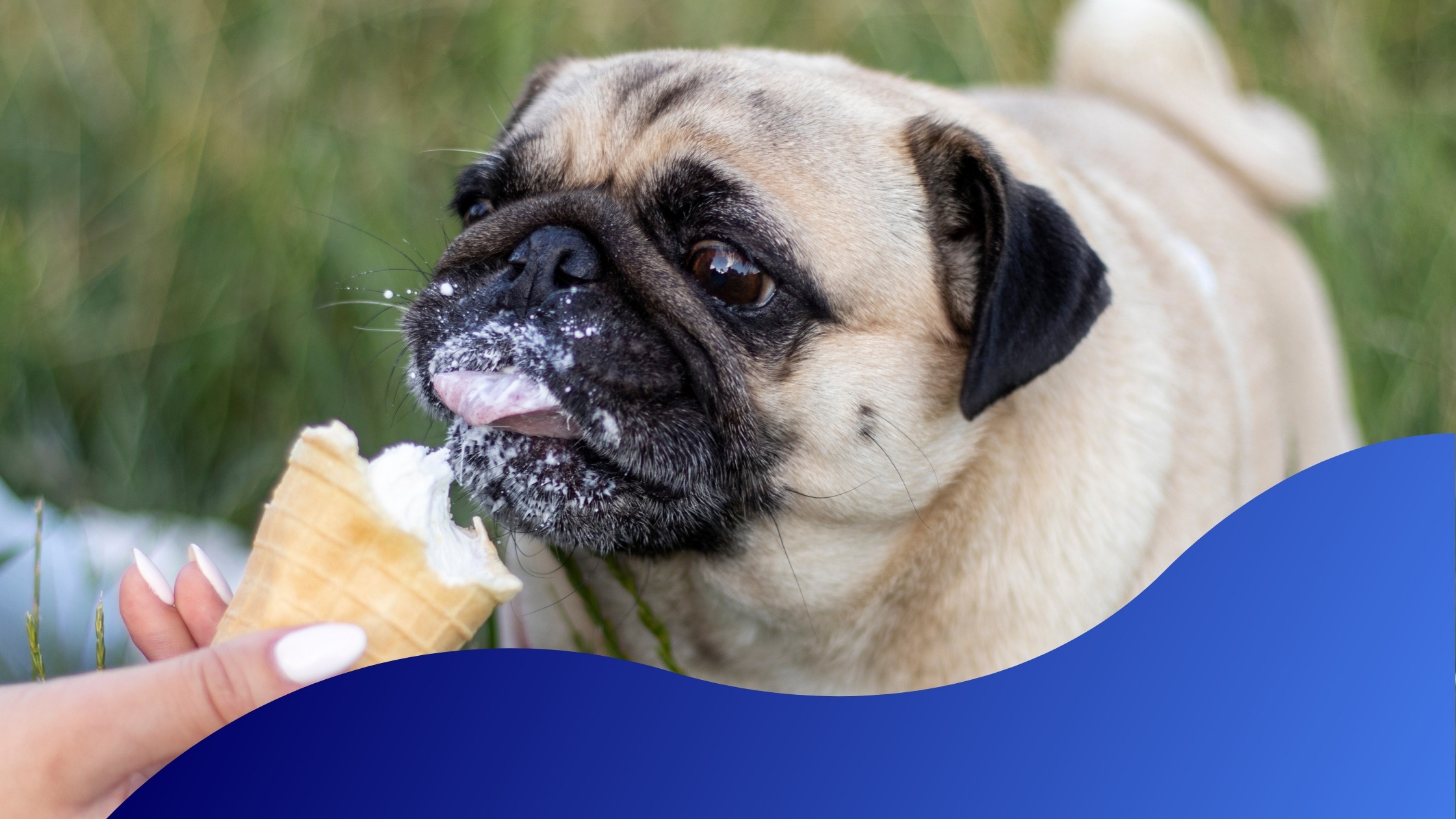What Could Be Better Than A Long Stroll With Your Pooch And An Ice-Cream In Hand? Heaven! Only Your Furry Friend Is Looking Up At You Now With Desire For Your Ice-Cream In Their Eyes, What Harm Could A Little Ice-Cream Do? Let’s Find Out…
Can dogs eat ice-cream?
Well they can eat anything if you allow them to, but should they? that’s the real question isn’t it?
Some dogs might be able to digest ice-cream without any apparent issues. However, the majority of dogs will develop symptoms after eat ice-cream, some more serious than others.
Don’t give in to those puppy eyes, do what is best for them and avoid giving them ice-cream, it’s for their wellbeing after all.

Why Is Ice-Cream Bad For Dogs?
There are plenty of reasons why Ice-cream is not a sensible choice for your canine companion.
Dogs are lactose intolerant, which means they cannot break down the sugar found in dairy products. Lactose intolerance can cause your dog to vomit and have diarrhoea, as well as uncomfortable abdominal cramps.
Other reasons include:
Pancreatitis & Weight Gain
High fat content could put your puppy at risk of pancreatitis, a severe painful condition where the pancreas gland becomes inflamed.
If that isn’t bad enough, the fat content isn’t only responsible for the risk of pancreatitis, it may cause your pooch to pile on the pounds, and obesity, which can lead to a shorter life span as well as painful joints.
Toxic Ingredients & Flavourings
The flavours and ingredients in ice-cream may be harmless to us humans but they can be dangerous for dogs.
Vanilla ice-cream poses no additional risks, sugar-free ice-cream may contain artificial sweetener xylitol which is toxic to dogs. Chocolate and raisins are also also very harmful.

What should you do if your dog eats ice-cream?
Don’t panic, most dogs will develop an upset stomach which will settle after a few days, just make sure they only have bland food for a few days, nothing too rich.
If you dog develops severe vomiting or diarrhoea or isn’t eating or drinking, they might be dehydrated, and will need to be seen by a vet to determine if they need medication or a fluid drip.
Other symptoms that require veterinary attention:
- Itchy skin/ rash that doesn’t improve in 24 hours
- Development of hives or swelling after eating ice-cream
- If they have digested ice-cream containing toxic ingredients such as chocolate or raisins
Dog-Friendly Ice-Cream Alternatives:

Thanks for reading, until next time…

